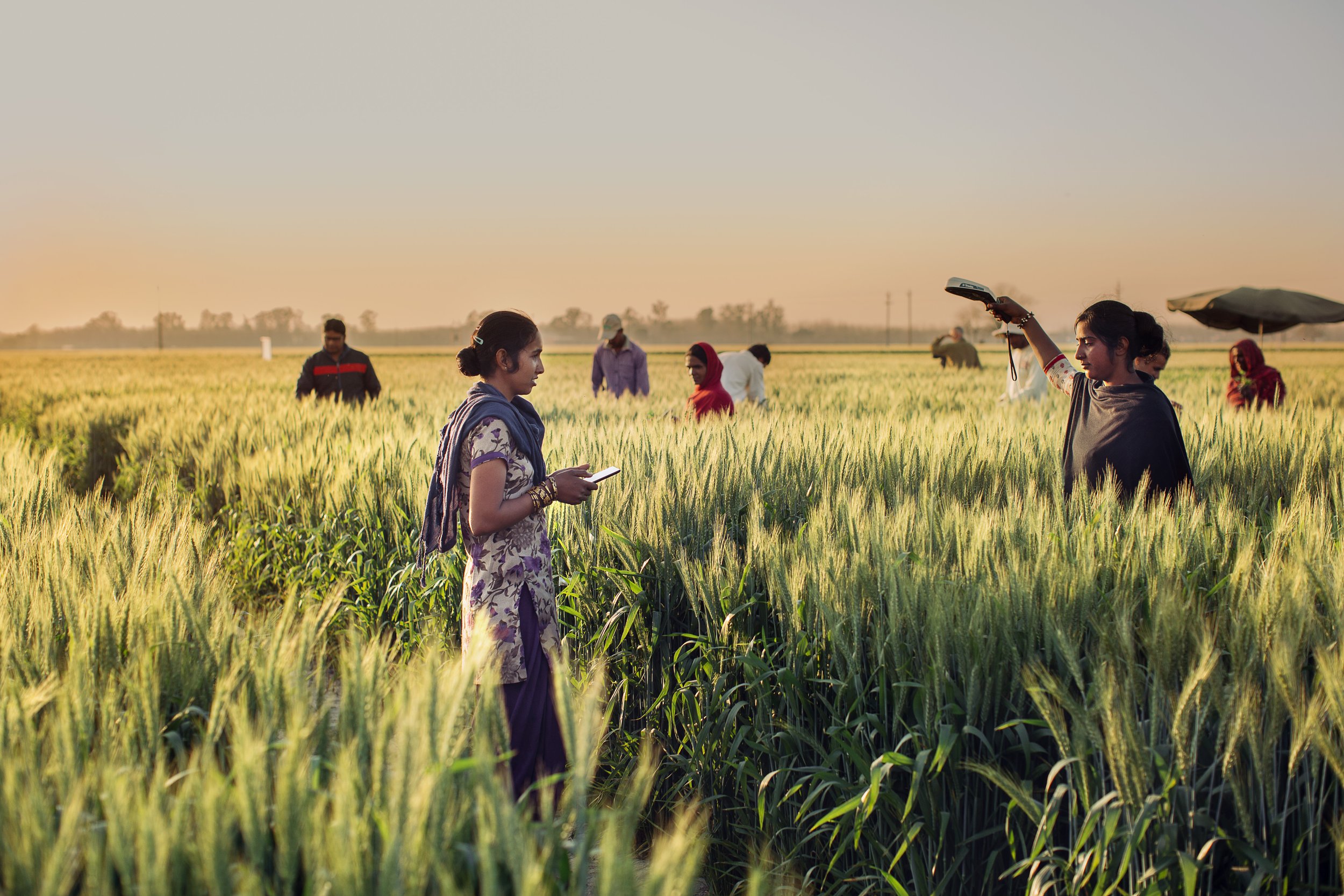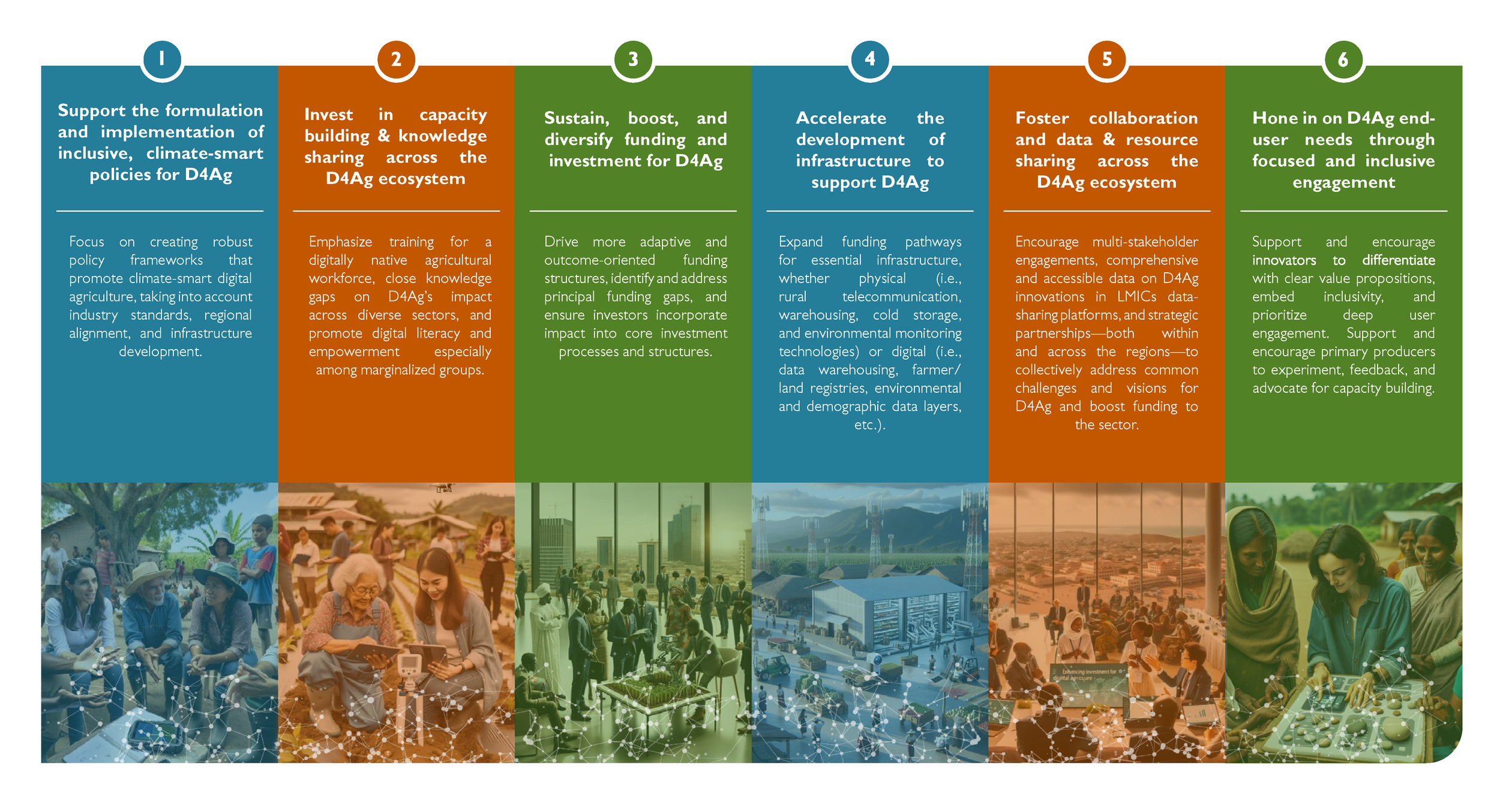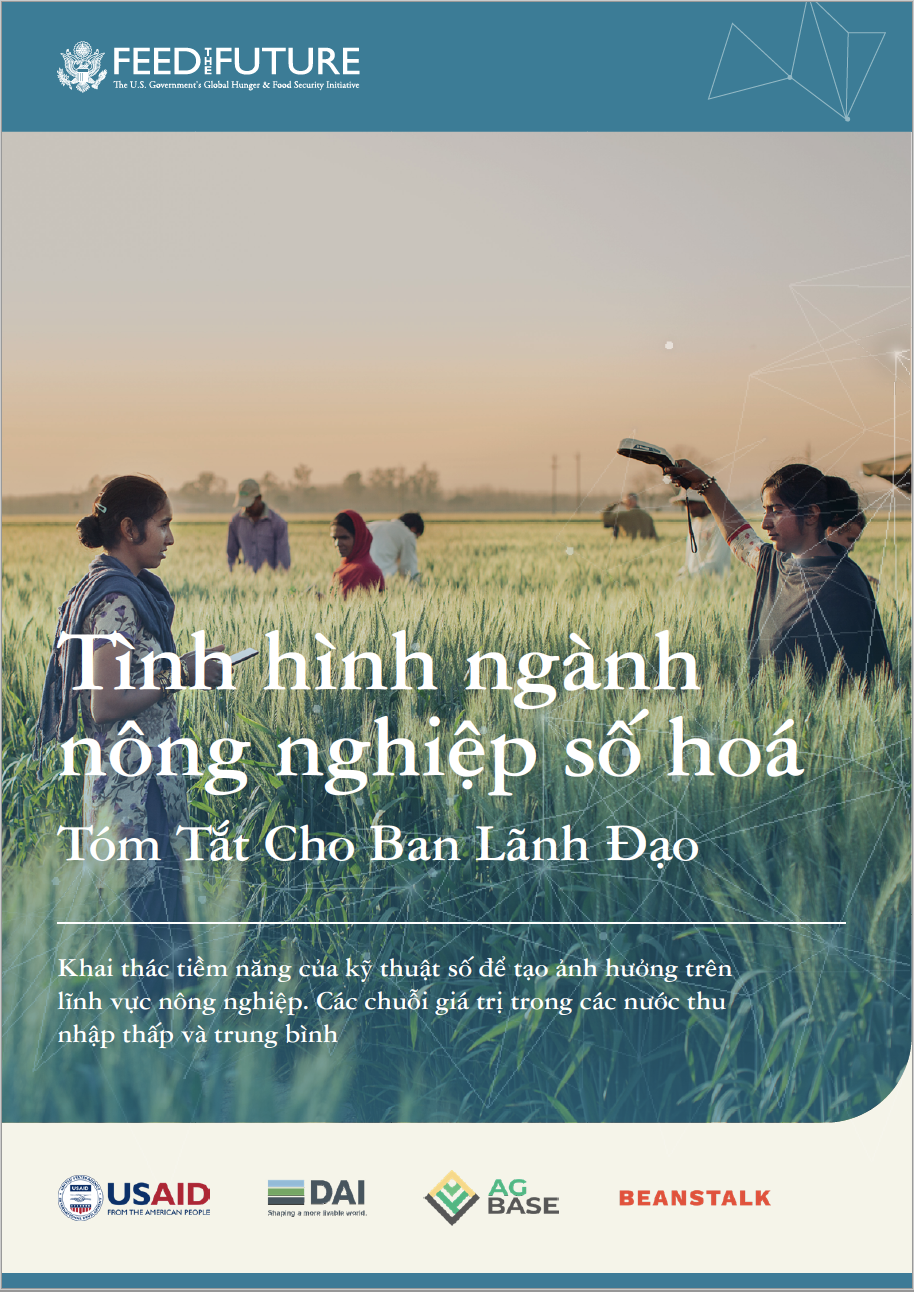
State of the Digital Agriculture Sector
Harnessing the Potential of Digital for Impact Across Agricultural Value Chains in Low- and Middle-Income Countries
The digitalization for agriculture ‘D4Ag’ sector in low- to middle-income countries (LMICs) is rapidly evolving and – given appropriate policy, practice, and support – can transform global development outcomes through improved environmental, social, economic, and food security outcomes.
What makes this report unique?
A first-of-its-kind global benchmark of D4Ag ecosystem state & penetration across LMICs.
In-depth analyses of the latest state of funding & investment, gender & social inclusion, and digital climate-smart agriculture landscapes.
Detailed regional insights across South Asia, Southeast Asia, Sub-Saharan Africa, and Latin America & The Caribbean, with direct comparisons.
Tangible and quantitative future outlooks and sector’s projections by 2033.
Key Insights
We identified nearly 1,400 D4Ag solutions currently active across LMICs in Latin America & the Caribbean, South Asia, Southeast Asia, and Sub-Saharan Africa.
They are headquartered in an astounding 81 countries, but only 10 markets represent the source of 67% of active D4Ag solutions in LMICs.
Across our focus regions, we estimate that D4Ag solutions have amassed upward of ~50 million active users – equal to approximately 10% of smallholder farming households in LMICs.1
The number of D4Ag solutions with >1 million registrants grew from an estimated 11 to 27 from 2018 to 2022.
The average share of users that are female for any given D4Ag solution is 26%.
As much as half of established (excluding ‘pre-commercial’) D4Ag innovators across LMICs are operating at or above break-even.
Through 2021, LMIC regions had seen the deployment of >$13 billion in funding & investment for AgTech – about 1/3 of the global total.
Over the next decade, the difference between a “derailed” and “thriving” D4Ag sector will equate to ~US$ $450 billion of value per annum, the equivalent of 9% of farm-gate greenhouse gas emissions, and 64M women with access to digital agriculture solutions. In the most positive scenario, we expect that there may be as many as 224 million farmers in our focus regions actively using D4Ag solutions in ten years’ time, representing a CAGR of 16%.
Challenges
There are seven key challenges that most constrain the emergence and sustainability of an inclusive, climate-smart, and commercially viable D4Ag sector:
Recommendations
With a focus on orienting the D4Ag ecosystems toward the “thriving” scenario, we have formulated a series of strategic recommendations (accompanied by illustrative and referenceable actions) for stakeholders across the D4Ag ecosystem:
Download the Reports
Main Report
State of the Digital Agriculture Sector: Harnessing the Potential of Digital for Impact Across Agricultural Value Chains in Low- and Middle-Income Countries [English]
Executive Summary
Executive Summary (English)
Executive Summary (Spanish)
Executive Summary (Portuguese)
Executive Summary (Vietnamese)
Executive Summary (Indonesian)
Executive Summary (French)
Regional Reports
Latin America &
the Caribbean (English)
Latin America &
the Caribbean (Spanish)
Latin America &
the Caribbean (Portuguese)
South Asia (English)
Southeast Asia (English)
Southeast Asia (Vietnamese)
Southeast Asia (Indonesian)
Sub-Saharan Africa (English)
Sub-Saharan Africa (French)
Our Partners
This study has been sponsored by USAID via Digital Frontiers, which is a $74.4 million buy-in mechanism implemented by DAI and available to USAID Bureaus and Missions from 2017-2023. Digital Frontiers works closely with USAID, the private sector, and international and local development organizations to identify successful and sustainable digital development approaches and scale their impact globally.
This effort has been also supported by Bill & Melinda Gates Foundation and the Foreign, Commonwealth and Development Office (FCDO).
Contributing Experts
Meet our diverse and experienced team, who added depth and breadth to the insights.
Alpha Sennon Caribbean Co-Lead
Andrea Coello Project Associate
Betty Wang Project Associate
Clara Lipscombe Project Associate
Claude K. Migisha East & Southern Africa Lead
Darío González Latin America Co-Lead
Hemendra Mathur South Asia & Investment Landscape Lead
Hoang Ngan Pham Southeast Asia Research Lead
Imelda Bacudo Climate Lead
James Chilima Sub-Saharan Africa Research
Jessica Gimenes Tambalo Latin America & Caribbean Lead
Justin Ahmed Lead Author
Katerina Kotenko Lead Author
Lily Tao Project Associate
Loretta Pilla Gender & Social Inclusion Lead
Moe Sumino Project Associate
Nicholas Amartey West Africa Lead
Paul Wood Protein Lead
Phoebe Norman Marketing Communications Lead
William Taing Southeast Asia Lead
Yvonne Mtumbi Mwanza Sub-Saharan Africa Research Associate
Upcoming Events
Keep an eye on this space for announcements regarding presentations, both virtual and in-person, where we delve deeper into the report insights for diverse audiences.
Get in touch with us
Have burning questions or exciting ideas? We're all ears!
Don't hesitate, let's innovate together for the future of agriculture!



























